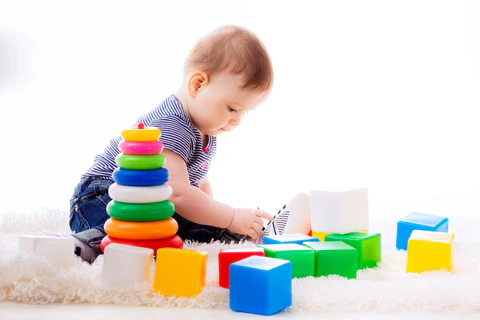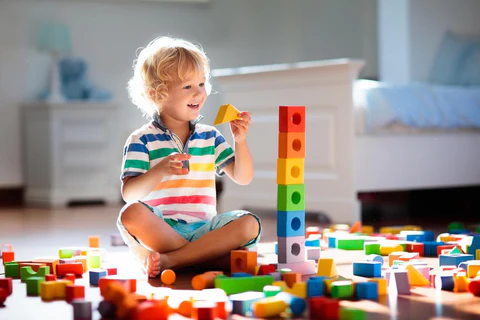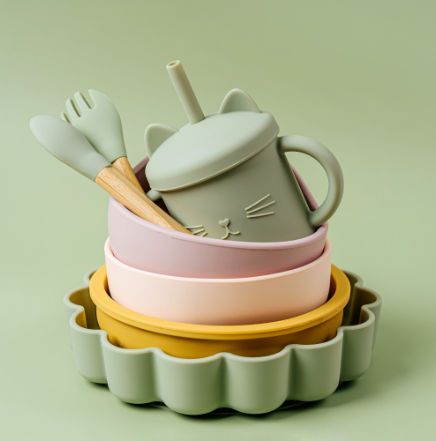SHOPPING CART
No products in the cart.
Child Development is vital at the time of raising your child. You feel, as a parent, the need to supply your children the toys that will help them learn at the time of playing. Playing with toys is the best way to foster your child’s development. Toys help your child develop and grow appropriately. Much of this development occurs naturally. However, you can improve it by giving the child attention, opportunities, and time.
Toys are a good tool for child development because they help improve social, physical, mental growth. Playing is a part of learning and growing, and toys play a vital role in their life. Do not be shocked that it develops them into mature and self-confident people in the future. In this innovative world, toy manufacturers keep up themselves with the fast-changing world. It reflects the current cultures and time. They provide an opportunity for the young ones to relate their modern toys to the world where they live.
Below are the reasons why toys are important for child development:
One trademark of the toys is how fine they care about creative, flexible play. For example, a tray of wooden food can motivate a child to devote a full afternoon running an imaginary restaurant, or planting and harvesting some crops on an imaginary farm. A set of blocks can be turned into a road system, a tower, a car, a fort, or even various animals. Also, the prospects for a pound of modeling clay are limitless. When a child spends a lot of time exploring different things with the help of a toy, it helps increase the child’s powers of imagination.


Here is another reason why toys are important for child development. Social skill is perhaps the first thing for children to learn. Children should be prepared to discover the environment and learn to recognize emotion. The toys can help children to mingle with others. A child can learn to interact with others. Toys are best for developing social skills in children.
To become a good citizen, the child should develop a sense of societal, personal, and environmental sense of responsibility. Generally, trusting a child to take good care of his/her toys, to play well with them, and perfectly put them back where they belong at the end of the play, can start to nurture a sense of responsibility in a child. Specific toys can develop various kinds of responsibility in children.
When you provide toys to your child like a building set, it should be assembled by the child. He/she will take it on the personal responsibility to follow the rules and directions and making sure the toy is assembled correctly. It will train the children to develop a sense of personal responsibility in the future. When the child takes care of a pretend pet or a doll, he or she also develops a sense of personal responsibility for satisfying his/her responsibilities to someone else.
Interactions and communications with others encourage the child to express his/her feelings. Children should learn the use of language and speak properly. Luckily, modern toys companies create advanced robotic toys. These toys can speak and ask questions as well. With appropriate guidance from older children or parents, learning how to speak appropriately can be fun. The young children will incline to mimic the voice or sound spoken by the modern toys. Toys manufacturers may attach various images to the toys. It is for the children to learn about different names of different things.
Generally, allowing the child to coordinate their own play and be responsible for what to do during their available activity helps them with becoming more independent and strong. Specifically, certain toys cultivate abilities, for example, critical thinking, assuming responsibility for a situation, and authority. One part of being independent is having the option to tackle an issue all alone. Playing with a toy lets a kid investigate various answers for the test of building different things. Legitimate difficulties looked all alone, like sorting out some way to utilize a bunch of example squares to recreate specific confounded examples, also construct critical thinking abilities.
Children need to foster muscle abilities and balances as they plan to investigate the climate. They will play with toys that expect them to move significant parts of the body including, legs, fingers, hands, and so on. Children can further develop their motor skills, for example, climbing and running. They also become more powerful. All the parents can give those toys which they can toss or drop and toys that move and can talk, for example, robots, toy cars, and strolling and talking dolls. Toy cars that they can ride or push are also strongly suggested.
Toys can also help children with creating reliability and integrity. Utilizing outfits and props to pretend circumstances, for example, client and server can help the child with rehearsing courtesy and habits. Carrying on situations, for example, dealing with a harmed doll or animal can cultivate sympathy and compassion. Also, playing cutthroat games by alternating and observing the guidelines fosters a child’s appreciation for good and bad. The instructive advantage of toys for child development cannot be ignored. The childhood pursuit for play and disclosure proceeds into adulthood. Children foster interest in their environmental elements from playing with toys and keep on picking up hobbies late into their grown-up life.
Toys can be both educating and fun. When parents offer the best toys to their children based on a definite stage of initial age development, these toys can promote their health, mental, and physical growth. Remember that the correct toys have good benefits for your children and that the children need to play for development. It encourages a varied imagination, socialization, self-expression, and creativity, all the vital qualities for making a well-rounded person.


Leave a Reply